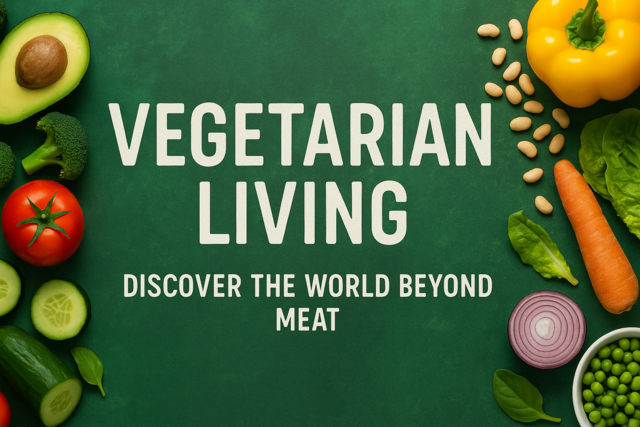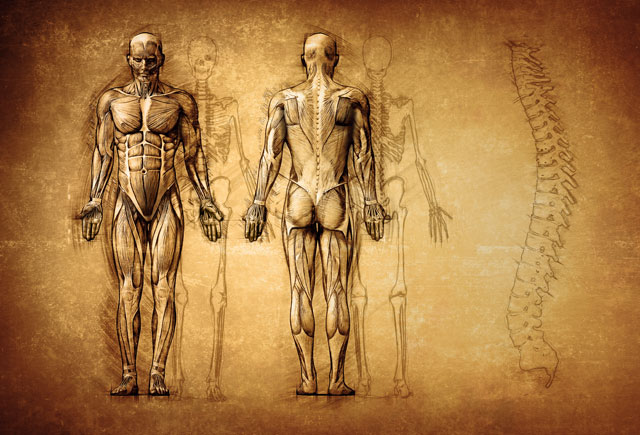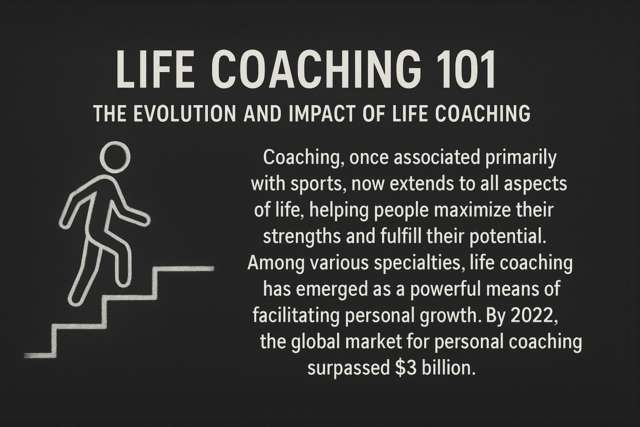Another complicating factor is that your body continues to lose lean muscle mass as you age, which means your metabolism will continue to slow down unless you work harder every year to keep challenging yourself.
What does all this mean? The long and short of it is that weight loss is just the beginning. Weight maintenance will take the rest of your life.
For long-term weight maintenance, it is also critical to remember your food triggers. If you used to cope with stress by turning to food, there will continue to be days when Ben and Jerry seem like the answer to all your problems. Over the years ahead, it will be critical to remember your healthy alternatives for coping. Whatever worked for you during weight loss will probably continue to work, as long as you remember to do it. If deep breathing, yoga, exercise, or talking to a friend/therapist helps, keep up those activities.
|
Remember everything you learned about healthy eating: o Don't skip meals, especially breakfast
o Eat at least three times a day.
o Be prepared with snacks when away from home.
o Have a plan of attack for the grocery store, and a weekly menu.
|
Keep challenging yourself and changing your workout. This will not only help you avoid boredom, it will help you maintain lean muscle mass and a high quality of life as you age.
Weight-bearing exercise like walking, running and weight lifting will also help build bone density (and so will a healthy diet), which helps prevent osteoporosis.
Maintenance over the long-term is another good time to have a good support network. Family can continue to encourage your weight maintenance by providing healthy foods and getting active with you. Having other friends who have lost substantially will provide you with other people who can understand what you've been through, and where you want to go.
When you develop a healthy lifestyle and start getting active, you tend to meet other people who enjoy the same activities. If you join a mountain-climbing group, for example, then many of your new friends will be mountain climbers. Most of the group outings will involve climbing and conversations about climbing. Having an active group of friends will not only keep you engaged and moving, but it can also motivate you to stay in better shape just so that you can do a better job of keeping up with your friends.
However, if you continue to hang around exclusively with people who only want to sit, eat junk food, watch television, drink too much alcohol, and other activities that will undermine your efforts at weight loss, you will eventually sink back into your old way of life and your old weight.
One way to stay motivated is to help other people who are struggling to lose weight. You can become a weight-loss evangelist. Many people who have maintained a substantial weight loss don't like to admit they ever weighed so much more than they do today, but admitting it and telling others how you did it can be extremely inspirational. As a successful "loser," you stand in an unparalleled position to motivate others by example. If a friend of yours, family member, or coworker is struggling with their weight, you can step into their life and help them. You can share the secrets of your success, and in the process, you will see yourself through new eyes. You will develop a deeper understanding of where you once were, and how you got to where you are now.
Some people who have lost a lot of weight even end up becoming fitness instructors and personal trainers so that they can share their knowledge and experience with others. That path is clearly not for everyone, but you can always share your story with others in your life who struggle with their weight and need a few words of wisdom.
Parents and Loved Ones
Making a decision to change your lifestyle and take on healthier eating and fitness habits is wonderful. It is just as wonderful to decide to help others in their quest for good health. This section discusses supporting your children and loved ones in maintaining a healthy weight. This section also discusses effective ways to get family members to support you in your own weight loss, and what to do about people who continually undermine your efforts.
Nearly every day in the news, we see a story about the growing problem of obesity in children. Studies suggest that nearly 13 percent of children in the U.S. are obese. The factors that have led to this situation are out of the scope of this study, but there is one common factor: a continuous pattern of taking in more calories than the body can burn in the course of a day. To turn the tide on childhood obesity, kids need to exercise more, and get better nutrition.
Many parents think that their kids will never eat healthy foods. The truth is, kids will eat what you give them and what is in the house for them to snack on. The same rules apply for kids as for adults: Keep the house stocked with healthy snacks. Purge the junk food if you can afford to, but if you can't throw it out right away, at least stop buying it.
It might take the kids a few weeks to adjust to not having any sodas in the house. They might complain because they would rather have super-ultra-butter popcorn instead of the 100-calorie mini-bags, but in the end, they will eat what is provided.
Even simple switches like moving from breads made with refined white flours to 100 percent whole-grain breads will add fiber, which as we discussed earlier, will help them feel fuller longer. Ditching sugary drinks like sodas, chocolate milk, and fruit punch can add up to a savings of several hundred calories a day, depending on how many of these drinks your child consumes. Not buying the sugary drinks will also cut down on your grocery bills -- tap water is always less expensive than soda.
As with adults, having a plan in place for dinner will help keep you away from the drive-thru. If you know you have a chicken waiting in your crock pot at home, you will not be so tempted to stop at McDonald's on the way back from soccer practice.
Whole grain bread with a schmear of peanut butter, a whole-wheat tortilla with lettuce, leftover roasted chicken and shredded carrots, a cup of low fat yogurt, fresh fruit in season, carrot sticks, and cucumber spears are all quick lunch possibilities. Be sure to talk to your kids to understand what they actually like--if you pack things they hate, they will either trade them or throw them out. But create clear guidelines when talking about lunch options. In other words, let them know that Lunchables aren't an option, but a turkey wrap is. If kids are old enough to be picky about what they do and don't like, then they are old enough to understand that certain foods are unhealthy and can eventually make them sick.
Children who struggle with their weight, like adults, don't enjoy the struggle. They just don't have the knowledge to make good choices. As a parent, you need to give them good guidance. Educate yourself about nutrition so that you can educate them.
Have kids help with preparing meals by doing simple tasks like shredding lettuce for the salad and adding cherry tomatoes. That way, they feel involved in the process. They might be more interested in eating the food they helped put together. While they are helping out, you can tell them that tomatoes are great sources of vitamin A, C and fiber. They also have lycopene, which can help ward of certain types of cancer and heart disease. Over time, they will be able to understand the positive qualities of healthy foods.
At the same time the obesity epidemic has been growing among children in the U.S., the trend toward organized sports has also grown. Many adults can remember a time in their own childhood when most sports were loosely organized gatherings -- a few friends would get together after school and kick a soccer ball around the neighborhood, or play catch at the park. My own family used to enjoy badminton and lawn darts in the summer after dinner. Now, it seems like every other child is in a soccer league, yet more and more kids struggle with their weight.
Physical education in schools doesn't seem to provide enough exercise, either. As academic demands increase, the time for physical education and recess continues to shrink. That leaves parents with the responsibility to provide exercise opportunities for the kids outside of school. Organized sports can be great. Some leagues are more expensive than others: A recreational group through your church or county will be easier to afford than a travel soccer team. Many gyms now offer kids memberships so children as young as 12 can participate in group fitness classes. There are also an endless range of dance, martial arts, and other classes for kids.
If taking the kids to Cardio Kick with you is not your idea of a good time, then think about the old-school activities people did before they had fitness centers and endless organized sports leagues. Take them outside. Incorporate an after-dinner walk or bike ride with the kids. It will not only give you both exercise, but also an opportunity to talk without the interruptions of Internet and TV. If you live in a neighborhood, you might also get to know your neighbors a little better. Consider installing a volleyball net and have the neighbors over to play. In this case, what's good for the kids is also good for you. As parents, we tend to be more willing to do something difficult if we can see that it is for our child's own good. That might even be better than doing it for ourselves.
When your husband or wife, sister or brother is trying to lose weight, you don't have nearly as much control over their diet as you do with your children's. There are a few key things to keep in mind. First, you can lead a horse to water, but you can't make it drink. In other words, you can tell your loved one that you care about them, that you want them to be around for a long time and to enjoy a high quality of life. You can tell them that you worry about their weight because you are afraid it will eventually wreck their health. But you cannot force them to change their ways. Ultimately, it has to be that person's decision to make substantial life change for the better. Until they do, you can't bully them or ridicule them for their weight problem. Okay, technically, you can bully and ridicule, but it will absolutely backfire on you and it will eventually cause bad blood between you and your loved one.
Sometimes it takes a real scare to motivate someone to change. It may take waking up in the middle of the night with severe chest pains for a person to realize how great their risk for heart attack is. It might even take having an actual heart attack before the realization hits. When that realization does come, and your loved one is finally committed to change, then the first thing you can do is provide emotional support. Ask them what they need you to do to help. Your spouse may ask you to help cook healthy meals at home to avoid having to eat in restaurants. Or, they might ask you to stop buying the black-tie chocolate mousse cake you both love so much because he or she just can't resist it.
Remember, whatever healthy changes your loved one makes are also good for you. You will not only be supporting them, you will be making healthy changes for yourself.
At times, tough love will come into play. In the context of weight loss, tough love means saying no to someone for whom you just want to do everything. With your kids, it may mean refusing to stop at McDonald's for a milkshake on the way home from school. With your spouse, it may mean not buying the super-fatty potato chips he just can't stop eating, or grilling chicken breasts instead of ribeyes.
When you take these actions, you may have to deal with some complaints and possibly some whining. Remind them that you are doing what you're doing because you care about their health, because you love them, and because you want them to be around for a long time.
The problem with the underminers is that they can't stand to see someone doing better than they are doing. If you got a promotion at work, these would be the people who'd be talking about you behind your back and saying you didn't deserve it.
The hard truth here is that people who really care about you, will want to see you making healthy changes. People who make fun of you for taking care of yourself just want to keep you down with them.
Significant weight loss will produce a wide array of life changes. One of these may be separating yourself from people who undermine your efforts at self-improvement. It may be hard to let go of old acquaintances, but if you keep hanging around with people who only want to bring you down, then you will never be able to move forward.





























